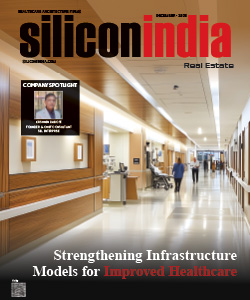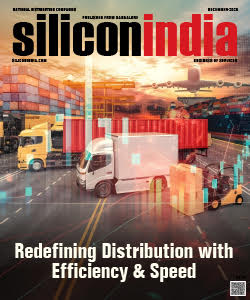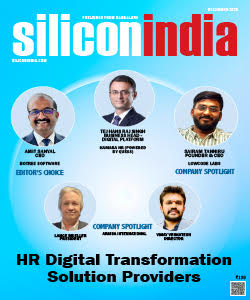A Brief Overview of the Current Sugar Manufacturing Space in India

Tarun holds a bachelor’s degree and a master’s degree from Emmanuel College, Cambridge University, and MBA from The Wharton School. He has been associated with Triveni Engineering for over two decades now, and is currently also the Trustee at Tirath Ram Shah Hospital, New Delhi and Chairman of Indian Sugar Exim Corporation Limited (ISEC). Additionally, he was also the chair of the National Task Force on Sugar, Ethanol & Bioenergy and is an active member of the CII.
Siliconindia recently got a chance to interact with Tarun, wherein he shared his insights on various facets of the current sugar manufacturing industry. Below are the key pointers from the exclusive interaction
What are your thoughts on the current Sugar manufacturing industry in India?
The sugar industry has been a major economical contributor to our country for the last many decades and is now becoming a major contributor to the sustainable development of the country – be it making ethanol for sustainable mobility or using bagasse (a renewable fuel) to generate electricity. Also, the sugar industry h, s been the flag bearer of Make in India, which has enabled us to leapfrog towards becoming one of the world’s major ethanol producers.
Currently, the Indian Government and the sugar sector are collaborating to meet the objective of 20 percent ethanol blending in petrol by 2025-26. This is a very important development towards the country’s energy independence, achieving its sustainable development goals, reducing our reliance on imported fossil fuels and thus saving precious forex. Additionally, the sugar industry is also creating long-term value for farmers by enhancing resource efficiency, rejuvenating ecosystems and employment generation. Overall, the sugar industry continues to play a crucial role in the socio-economic growth of the country.
What are some of the latest technologies disrupting the sugar manufacturing space?
Advancements in technology have enabled the sugar manufacturing industry to undergo complete metamorphosis. From producing ethanol from sugarcane derived feedstocks, the industry is now moving towards multi-feed distilleries, which enables sugar manufacturers to produce ethanol from feedstocks like rice, grains and maize, in turn decreasing its dependency on sugarcane-based feedstocks. Also, sugar manufacturers are now leveraging biotechnology to produce high-yielding, high sucrose, disease resistant sugarcane varieties
With the help of digital solutions such as IoT, data analytics, and machine learning, sugar manufacturers can monitor and optimize the sugar production process in real-time by improving production efficiency, reducing costs and improving product quality. Energy-efficient technologies are being used to reduce the energy consumption at sugar manufacturing facilities. Also, significant reduction in process steam requirements is being achieved through extensive vapour bleeding by revamping evaporators, utilizing vertical continuous pans, automation of process and optimised under B-heavy & syrup diversion processes. Overall, the sugar industry is adopting several technologies to improve its sustainability and efficiency.
How can sugar manufacturing companies ensure the quality of their products?
Sugar companies must follow a rigorous quality control process that encompasses every stage of the sugar production cycle – right from sourcing raw materials to selecting the sugarcane varieties that are best suited for production process. Sugar mills then conduct multiple quality checks to ensure that it meets the required quality standards. During the sugar production process, it is important to use advanced technologies and equipment to maintain high levels of hygiene and ensure that there is no contamination in the sugar during its manufacturing processes. There must be a dedicated quality control team that conducts regular tests and inspections at every stage of the production process to ensure that the sugar meets all regulatory and customer requirements.
At Triveni Engineering & Industries, we understand the paramount importance of delivering superior quality products. Our robust quality management system allows us to promptly identify and address any issues in real-time, ensuring consistent product quality and customer satisfaction. With certifications for refined sugar meeting International EEC II grades and pharmaceutical-grade sugar with ICUMSA below 45, conforming to IP/BP specifications, we demonstrate our commitment to delivering top-notch products. Furthermore, we reinforce our dedication to quality through adherence to the FSSC 22000 certification. These certifications, combined with our advanced technologies and comprehensive quality control measures, solidify our commitment to delivering high-quality sugar products to our customers.
Tell us about a few factors that consumer must be aware of while purchasing sugar for their diverse use cases?
The quality of sugar is of utmost importance. Consumers must ensure that the sugar they buy is free from impurities and meets high-quality standards. This is particularly crucial for those who use sugar in food and beverage production since substandard sugar can affect the taste and overall quality of the final product. It is also essential to ensure that the sugar they purchase is produced in sustainable way. Furthermore, when buying sugar for their various needs, consumers should consider factors such as quality, packaging hygiene, type, price and sustainability. By doing so, they can make informed decisions and ensure that the sugar they purchase meets their requirements while also contributing to a better world.
How do you expect the industry to evolve in the future?
Going forward, the sugar industry will undergo significant changes driven by shifts in consumer demand and the need for sustainable production methods. While traditional sugar production will continue to play a crucial role in the industry, producers will need to focus on increasing their efficiency, and adopting sustainable practices. Advancements in technology, such as automation and data analytics, are transforming the way sugar is produced. By adopting these technologies, producers can increase their efficiency and reduce their costs. Additionally, automation can help improve the efficiency, safety and quality of the sugar production process. Another area of focus for the industry is sustainability. With the Government focussing on sustainability and consumers becoming increasingly environmentally conscious, sugar producers must invest in sustainable production methods and water conservation measures.
Read More News :

.jpg)
.jpg)


